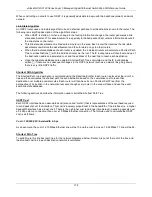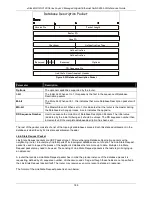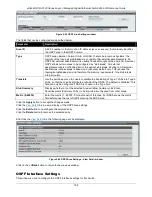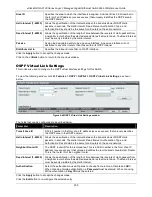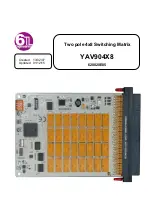
xStack® DGS-3120 Series Layer 3 Managed Gigabit Ethernet Switch Web UI Reference Guide
185
Hello Packet
1
Packet Length
Router ID
Area ID
Version No.
Checksum
Authentication Type
Authentication
Authentication
Network Mask
Hello Interval
Options
Router Priority
Router Dead Interval
Designated Router
Backup Designated Router
Neighbor
Figure 5-32 Hello Packet
Parameter
Description
Network Mask
The network mask associated with this interface.
Options
The optional capabilities supported by the router.
Hello Interval
The number of seconds between this router’s Hello packets.
Router Priority
This router’s Router Priority. The Router Priority is used in the election of the DR and
BDR. If this field is set to 0, the router is ineligible to become the DR or the BDR.
Router Dead Interval
The number of seconds that must pass before declaring a silent router as down.
Designated Router
The identity of the DR for this network, in the view of the advertising router. The DR is
identified here by its IP interface address on the network.
Backup Designated
Router
The identity of the Backup Designated Router (BDR) for this network. The BDR is
identified here by its IP interface address on the network. This field is set to 0.0.0.0 if
there is no BDR.
Neighbor
The Router IDs of each router from whom valid Hello packets have been seen within
the Router Dead Interval on the network.
Database Description Packet
Database Description packets are OSPF packet type 2. These packets are exchanged when an adjacency is being
initialized. They describe the contents of the topological database. Multiple packets may be used to describe the
database. For this purpose, a poll-response procedure is used. One of the routers is designated to be master, the
other a slave. The master seconds Database Description packets (polls) that are acknowledged by Database
Description packets sent by the slave (responses). The responses are linked to the polls via the packets’ DD
sequence numbers.
Summary of Contents for xStack DGS-3120 Series
Page 1: ......








